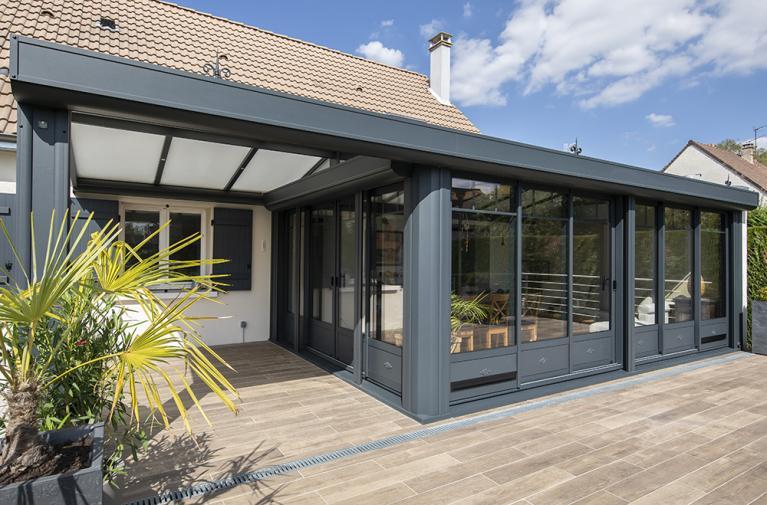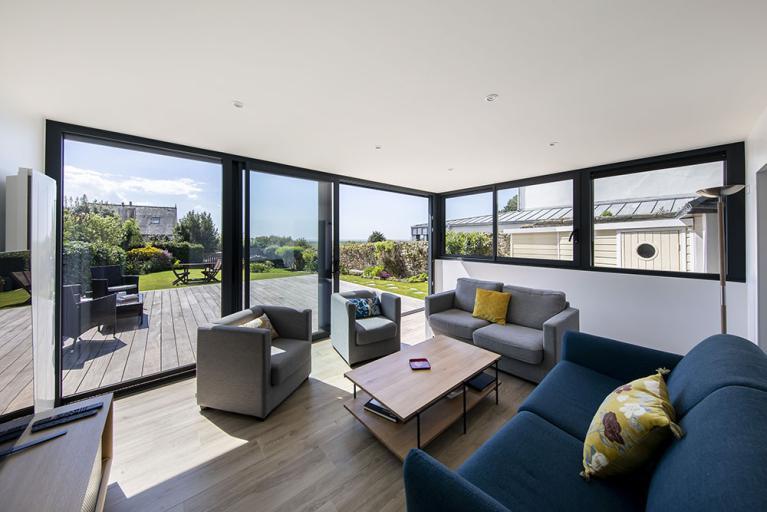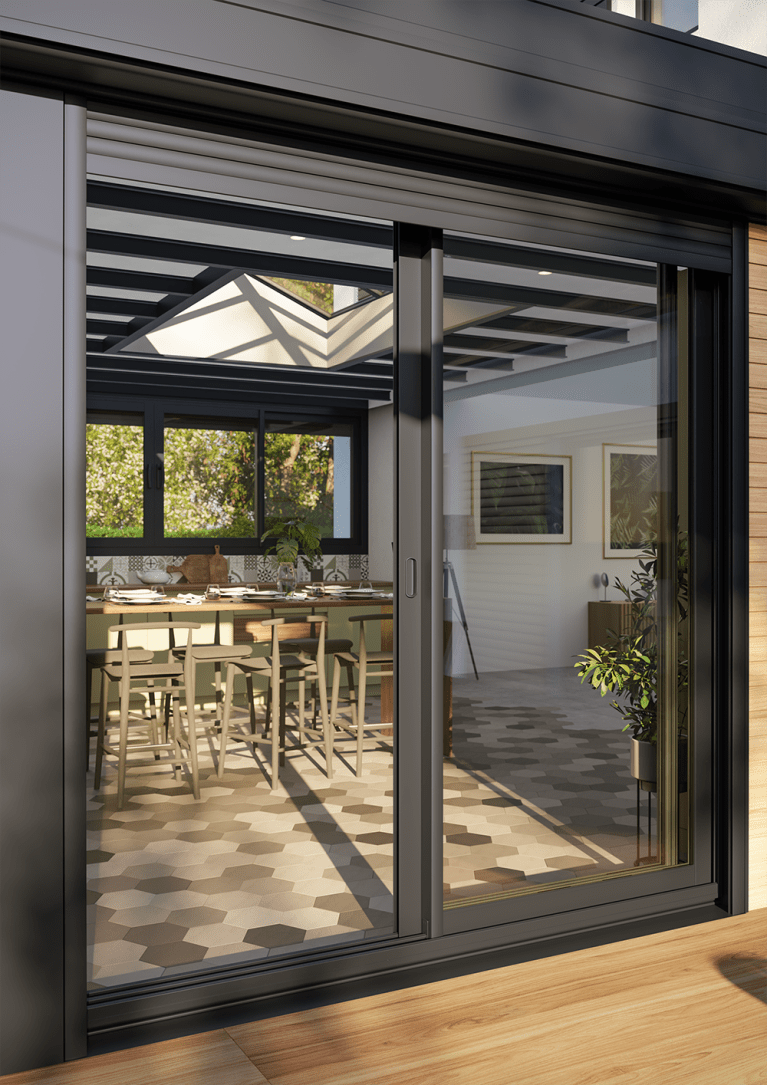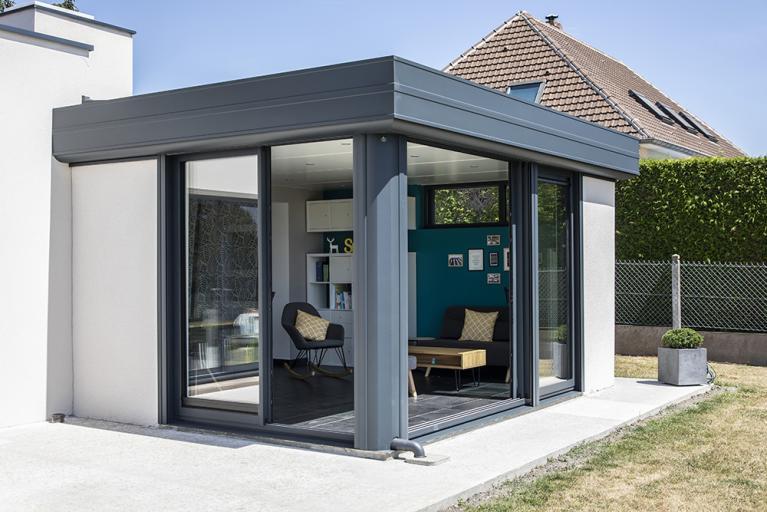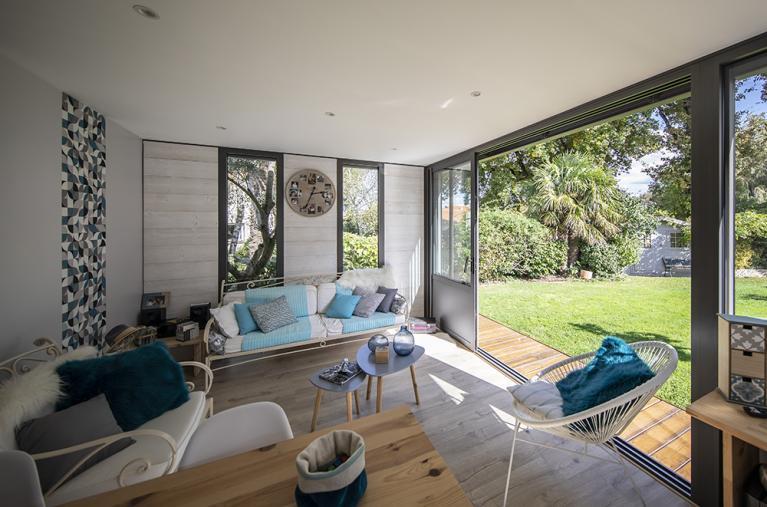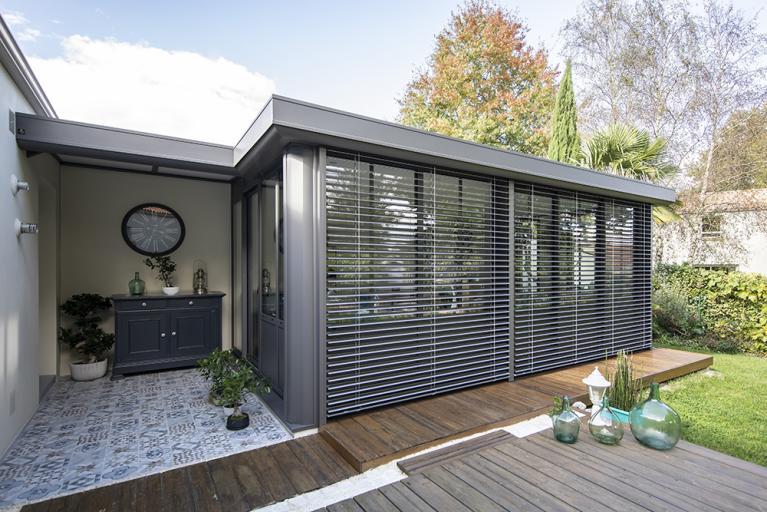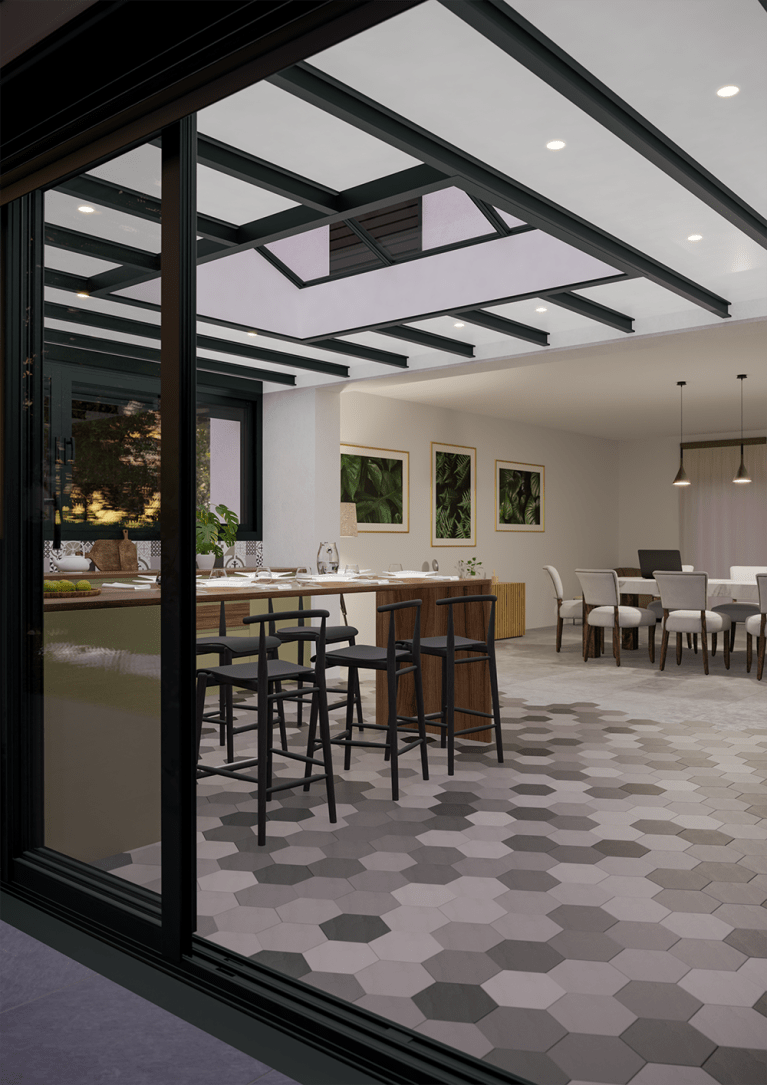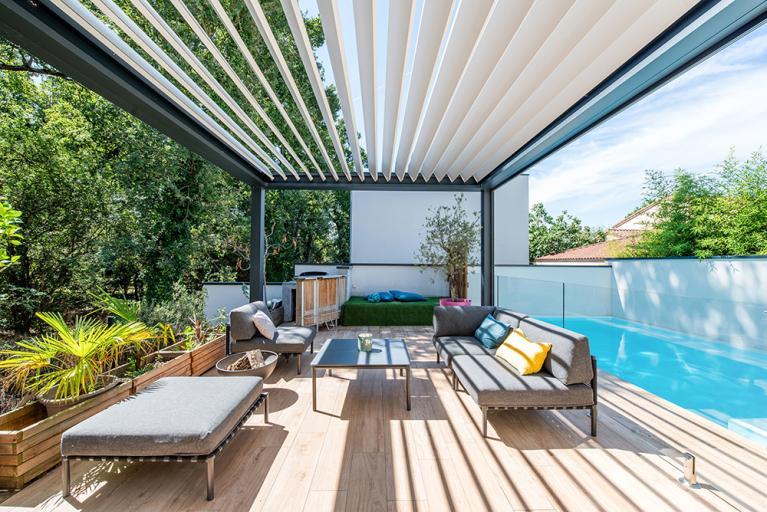What is the difference between an extension and an enlargement?
Enhancing your living space is an aspiration shared by many homeowners. When it comes to optimising your living space by redesigning it, house extensions stand out as two popular options. But what's the difference between an extension and an enlargement? It's not always easy to grasp the nuances between these two types of development, or to understand the implications of each project. That's why AKENA can help you find the best solution for your needs straight away.
What is the difference between an extension and a house enlargement?
The difference between an extension and an enlargement lies mainly in the way they increase living space. Building a house extension involves adding one or more new rooms. This creates additional living space. Conversely, an enlargement aims to increase the size of an existing room or space by modifying its internal structure. Although these two approaches optimise the use of space, they differ in terms of application, design, cost and completion of the work.
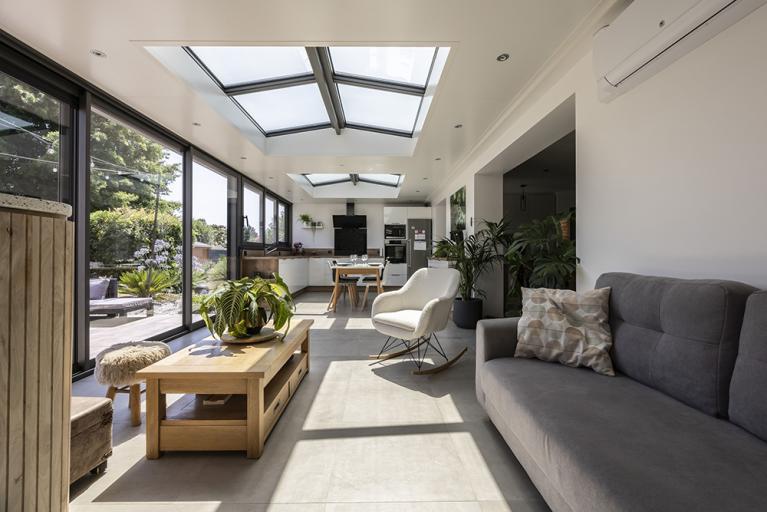
What is a house extension?
A house extension involves adding a new structure to the existing one, usually on one level, to increase the living area. This may involve building an extra room, a conservatory, a pool house or a pergola. The main aim is to create an additional space while preserving the integrity of the existing building. Extensions are often chosen to create living rooms, kitchens, offices or relaxation areas without disrupting the general layout of the house.
What is considered as an enlargement?
Enlargement, on the other hand, involves a more significant change to the existing structure. It aims to increase the living area by using spaces that were not originally designed to be lived in. For example, a room can be enlarged by pushing the walls outwards, or an attic space can be converted into a living area.
What are the advantages and disadvantages of an extension?
An extension allows you to add an extra room without changing the current layout of your house. This solution gives you great flexibility in terms of the type of extension you want, the design and the layout. It gives you the opportunity to personalise your new space according to your needs and preferences.
Building an extension can be relatively expensive because of the materials and work required, such as foundations, walls and roofing. Although the budget required can represent a significant investment, it is often justified by the long-term benefits that an extension can bring, both in terms of comfort (insulation, light, functionality) and in terms of adding value to the property.
An extension also requires sufficient space around the house, which may at first sight reduce the size of your terrace or garden. However, this constraint can be turned into an advantage by creating spaces that combine the outdoors and indoors, or by creating a real living area that opens onto the garden, providing a harmonious link between the house and the garden. This approach optimises the use of outdoor space while bringing more natural light indoors.
What are the advantages and disadvantages of an enlargement?
Enlargements allow you to optimise the use of existing space without encroaching on the exterior of your home. It maximises the use of interior space, which is often underused or poorly laid out. This solution can be more economical if the modifications are relatively simple, such as knocking down a partition or pushing out a wall, because it avoids the costs associated with building new foundations and structures.
However, enlargement does have its limitations in terms of the layout and customisation of the extra space. The structural constraints of the existing building can restrict design and layout options, sometimes making it difficult to achieve certain desired layouts. In addition, it may involve more complex works, which can make the project more costly and disruptive during its construction. In fact, the work may cause temporary inconveniences that affect your daily life (noise pollution, dust, traffic problems, etc.).
Enlargement vs. extension: what are the budget differences?
The difference between an extension and an enlargement also lies in the cost. These vary considerably depending on the complexity and scale of the project. An enlargement can be less expensive if the alterations are simple and do not require major structural work. However, if larger-scale alterations are essential, the budget required can quickly increase. Building an enlargement can therefore quickly exceed the cost of an extension.
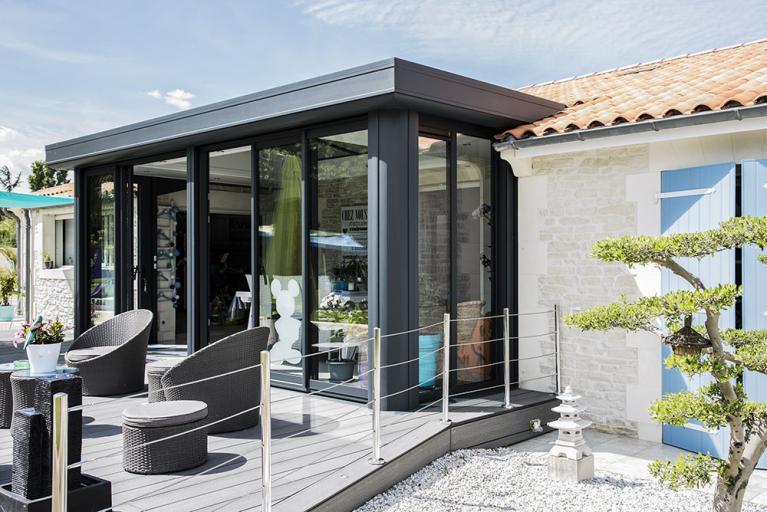
Extension or enlargement: how do you choose the best solution for your project?
To choose the solution best suited to your needs, it's essential to take a number of factors into account:
- The layout of your plot: if you don't have much land, an extension may be the best solution for making the most of the space available.
- Your space requirements : if you need to create new living spaces, an extension is generally more appropriate. If you simply want to extend an existing room, an enlargement may suffice.
- Your budget : it's important to define your financial possibilities before embarking on the project.
- Technical constraints : an enlargement can be technically more complex than building an extension.
- Your architectural wishes: an extension gives you more freedom to design a space that reflects your image.
Your made-to-measure extension project with AKENA
You know the difference between an extension and an enlargement, but you're still hesitating between the two? At AKENA, we understand that every project is unique and requires a personalised approach. Contact our experts: they'll be happy to give you the best possible advice and support at every stage, from design to construction.
You canalso take a look at some of the projects we ‘ve already completed for our customers, and imagine the possibilities for your own home.
Read all the articles in the magazine
You have a project?
Would you like a personalised 3D study and a free quotation? Contact us by clicking below.
AKENA is...
Over 40 years of experience
Founded in 1981 by one man, we now have more than 500 employees dedicated to making your project a success.
Made in France
A historic site and two factories covering more than 25,000 m² in Dompierre-sur-Yon in the Vendée region (85)
Innovative and tailor-made products
At AKENA, we are brimming with new ideas to improve and enhance our products.
The European leader in conservatories, pergolas...
But not only! AKENA also offers a complete range of carports and pool houses.
